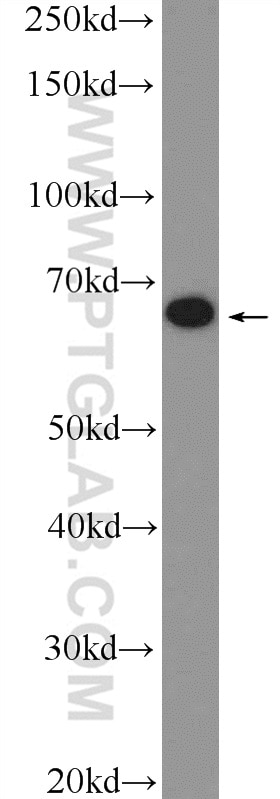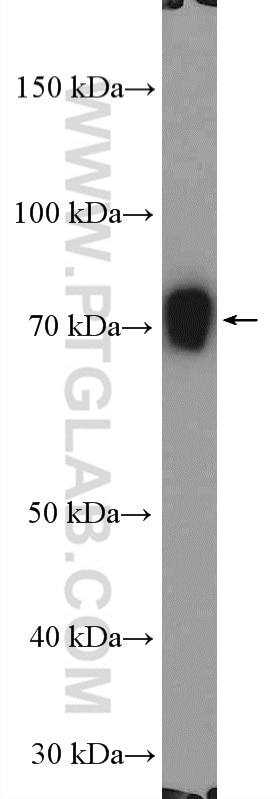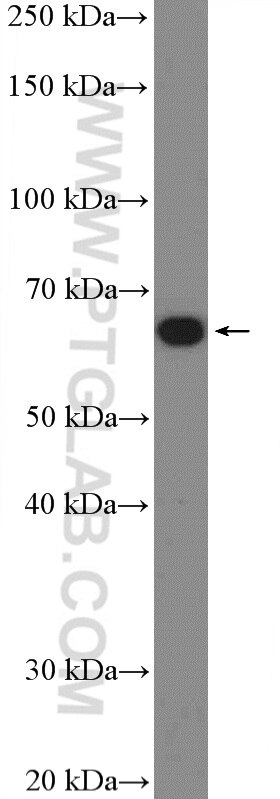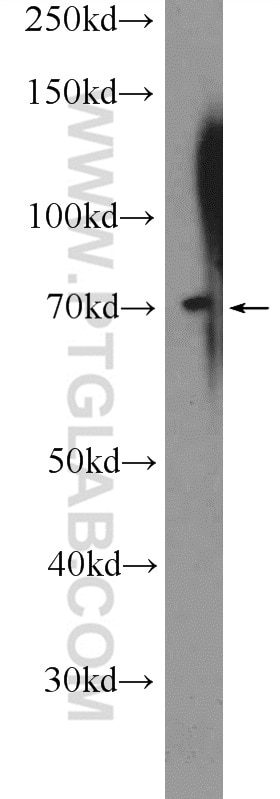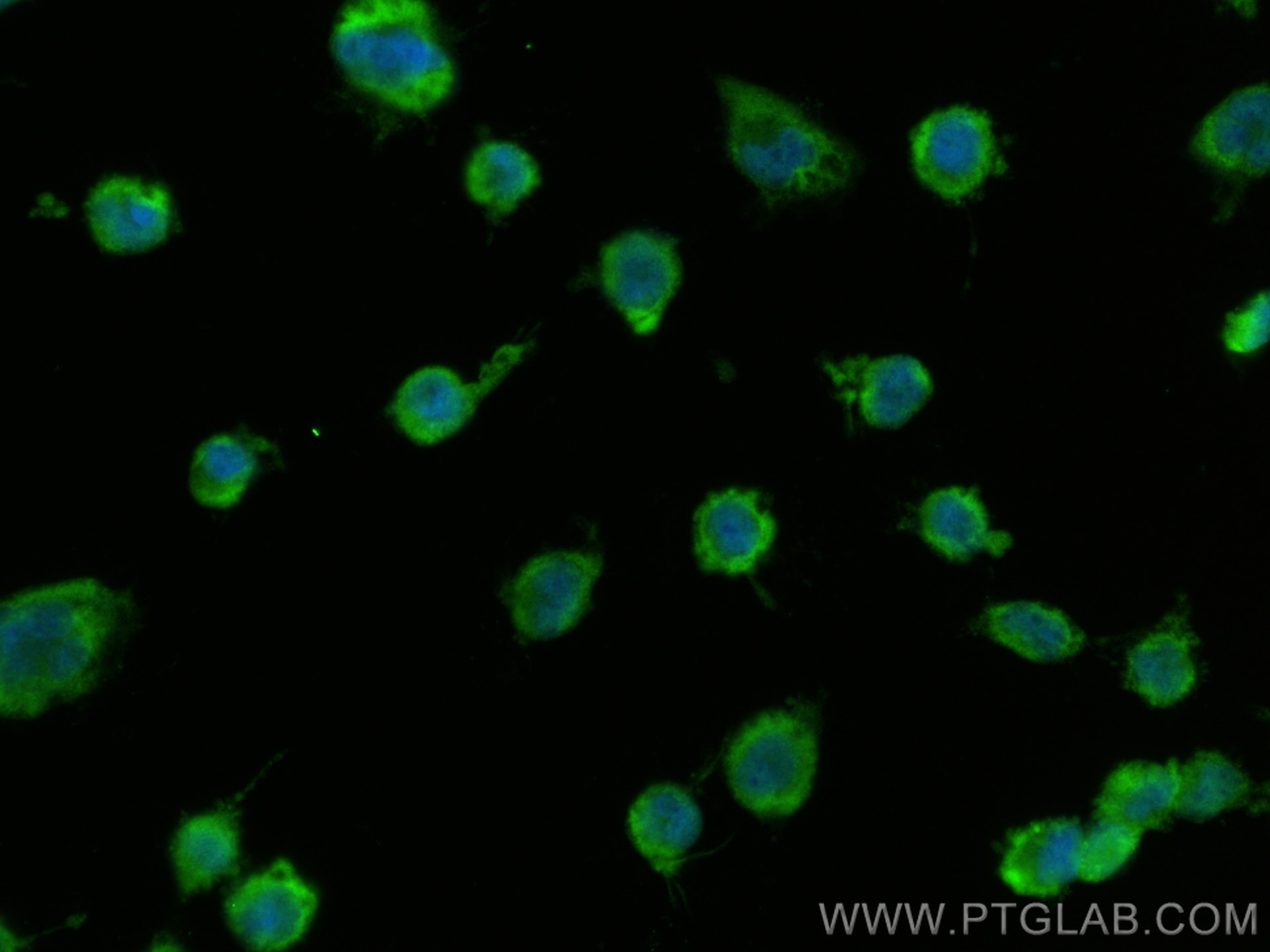MBTD1 Polyklonaler Antikörper
MBTD1 Polyklonal Antikörper für IF, WB, ELISA
Wirt / Isotyp
Kaninchen / IgG
Getestete Reaktivität
human, Maus
Anwendung
WB, IF, ELISA
Konjugation
Unkonjugiert
Kat-Nr. : 26098-1-AP
Synonyme
Galerie der Validierungsdaten
Geprüfte Anwendungen
| Erfolgreiche Detektion in WB | Jurkat-Zellen, HL-60-Zellen, K-562-Zellen, Mausmilzgewebe |
| Erfolgreiche Detektion in IF | U-251-Zellen |
Empfohlene Verdünnung
| Anwendung | Verdünnung |
|---|---|
| Western Blot (WB) | WB : 1:500-1:1000 |
| Immunfluoreszenz (IF) | IF : 1:200-1:800 |
| It is recommended that this reagent should be titrated in each testing system to obtain optimal results. | |
| Sample-dependent, check data in validation data gallery | |
Veröffentlichte Anwendungen
| WB | See 1 publications below |
Produktinformation
26098-1-AP bindet in WB, IF, ELISA MBTD1 und zeigt Reaktivität mit human, Maus
| Getestete Reaktivität | human, Maus |
| In Publikationen genannte Reaktivität | human |
| Wirt / Isotyp | Kaninchen / IgG |
| Klonalität | Polyklonal |
| Typ | Antikörper |
| Immunogen | MBTD1 fusion protein Ag22059 |
| Vollständiger Name | mbt domain containing 1 |
| Berechnetes Molekulargewicht | 628 aa, 70 kDa |
| Beobachtetes Molekulargewicht | 65-70 kDa |
| GenBank-Zugangsnummer | BC101736 |
| Gene symbol | MBTD1 |
| Gene ID (NCBI) | 54799 |
| Konjugation | Unkonjugiert |
| Form | Liquid |
| Reinigungsmethode | Antigen-Affinitätsreinigung |
| Lagerungspuffer | PBS mit 0.02% Natriumazid und 50% Glycerin pH 7.3. |
| Lagerungsbedingungen | Bei -20°C lagern. Nach dem Versand ein Jahr lang stabil Aliquotieren ist bei -20oC Lagerung nicht notwendig. 20ul Größen enthalten 0,1% BSA. |
Protokolle
| Produktspezifische Protokolle | |
|---|---|
| WB protocol for MBTD1 antibody 26098-1-AP | Protokoll herunterladen |
| IF protocol for MBTD1 antibody 26098-1-AP | Protokoll herunterladen |
| Standard-Protokolle | |
|---|---|
| Klicken Sie hier, um unsere Standardprotokolle anzuzeigen |
Publikationen
| Species | Application | Title |
|---|---|---|
Biochim Biophys Acta Mol Basis Dis BAP18 acting as a novel peroxisome proliferator-activated receptor α co-regulator contributes to hepatocellular carcinoma progression |
